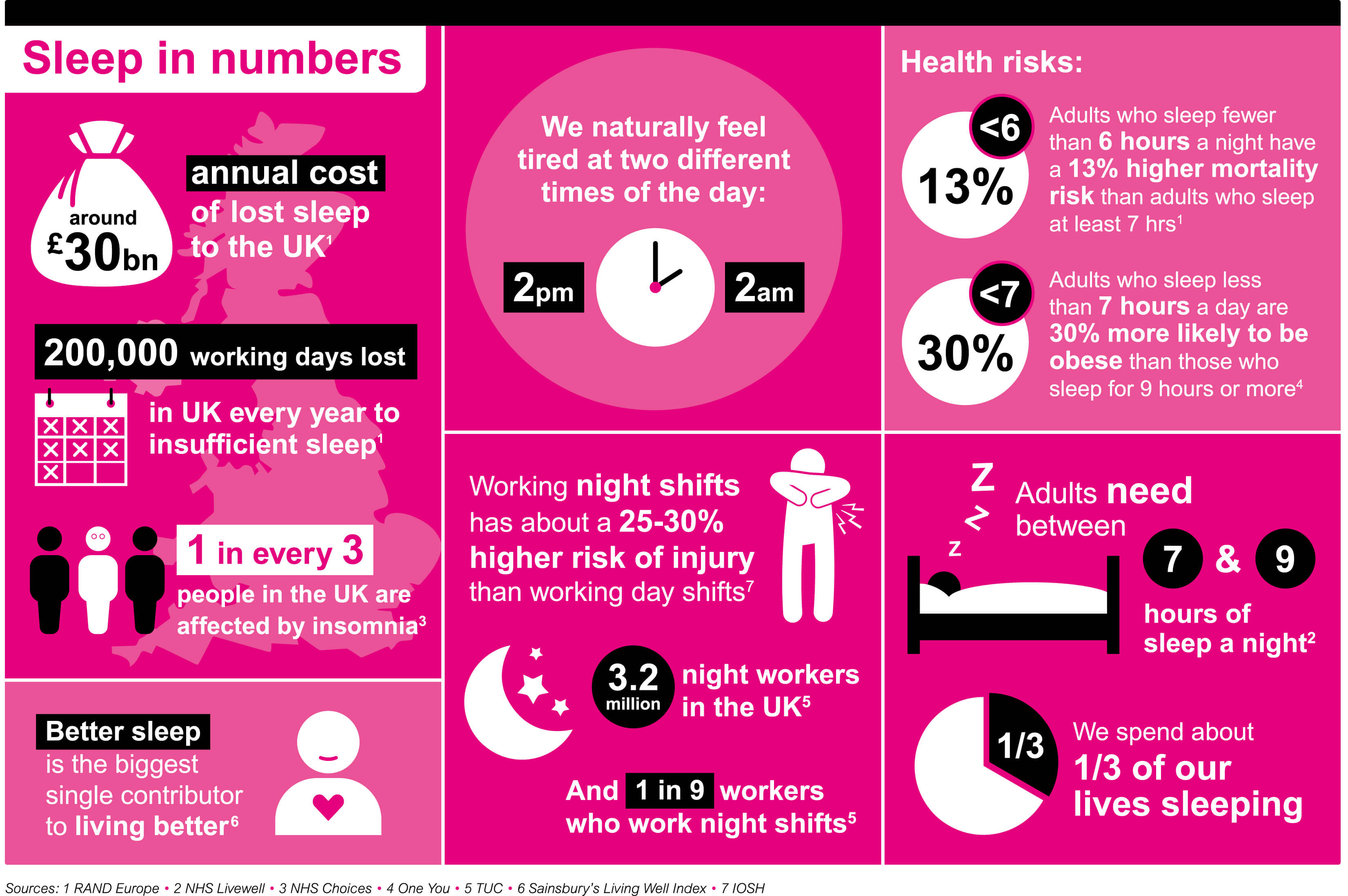


Business in the Community last week published a first-of-its-kind Sleep and Recovery Toolkit for employers, to support staff to improve sleeping patterns and boost productivity.
Lack of sleep is a growing public health issue, with one in three people in the UK affected by insomnia. Stresses of modern life, physical and mental health issues, and a 24/7 society are thought to be key drivers of poor quality of sleep. Increasingly it is also being linked to high blood pressure, diabetes, heart disease, as well as a heightened risk of accident and injury. Overall, it is estimated that sleep deprivation is responsible for 200,000 working days lost every year, costing the UK economy £30bn.
Business in the Community Wellbeing Director Louise Aston commented, “It is critical for organisations to understand the impact of sleep and recovery for the health and wellbeing of employees, and the implications for productivity. Sleep is still a largely neglected taboo topic for employers fearing they are crossing the line between work and peoples’ personal lives by even talking about it with employees. Gone are the days when it was in fashion to survive with five or six hours sleep. This toolkit is a great resource for employers to help people start talking about this issue”.
The toolkit, produced in association with Public Health England, aims to help employers to reverse the increase in poor sleeping patterns, and highlights both the moral and business case for good quality sleep. It encourages the development of working environments where employees can be open with their managers about sleep-related issues. Using a checklist provided, it support employers to take action around being prepared, encouraging good sleep and recovery, and providing knowledge and training.
Dr Justin Varney, National Lead for Adult Health and Wellbeing at Public Health England, said, “This toolkit contains lots of simple steps for employers of all sizes and sectors to take in supporting better sleep for staff and reducing or preventing work being the cause of sleep deprivation. It’s designed to support leaders, practitioners and line managers to create a workplace culture in which employees understand the need for sleep and recovery, as one strand of an integrated approach to maximising employee health and wellbeing.”
Visit BITC’s website to download the toolkit